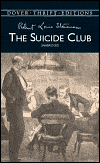
Well, this should probably not be the one to start this esteemed journal, but here it is anyway. In fact, after this installment you may never read this catalogue again.
I had just finished Harry Potter # 2. I was living in the middle of nowhere for the summer and so most of my book shopping had to be done at that great beacon for learning and imparter of knowledge...the book aisle at Wal-Mart. I didn't know Sam Walton could even read. I guess the truck and the overalls fooled eveyone, not just mom and pop. I digress.
Pirates 3 had just come out in theatres and I was forbidden access to the show because the small town movie place apparently runs box office hits for a week and then replaces them with Transformers and other future selections for Masterpiece Theatre to consider. I have always been fascinated with Vampires, and I was, at the moment of spotting the text at hand, thinking about Johnny Depp and the hot chick in the Pirates movies. Wrap those into one and you got it. My eye just happened to glance at the cover and I was hooked. I picked it up, turned it around in my hand, read the flap, and then noticed the prize. A perforrated leaf attached to the back cover of the novel could be torn away and used as a bookmark. I actually had to call Alisa Dishong, our Vice President and Senior Reviewer here at DBR, to try and gain enough of her ridicule to persuade me to put the book down. I was, however, so impressed with the bookmark that I think I accidentally peaked her interest. To make a short story long (my expertise), I purchased the book. Words cannot describe the shame I felt while standing in line with this volume in my hand. My only consolation was that I was assured most of the shoppers in the particular town I was in couldn't read anyway.
I made quick work of the text as it was light reading designed for stupid children who carry around Harry Potter wands even when it's not Halloween. (I saw this kid yesterday at Barnes & Noble, I'm still mad at his parents.) The main characters are two twins, one boy, one girl who's father, the lighthouse keeper in a coastal town, dies leaving them with the options of an orphanage or being the pets of the bank president and his wife. Stealing their dad's sailboat from the marina they make their escape only to be capsized by a violent gale. The brother is rescued by a ship of pirates, the sister by a ship of Vampirates. The story is of their trying to find each other while being duly educated (corrupted, spoiled) by their new shipmates. Will he embrace the vagrant life of a thieving, murdering pirate? Will she escape the clutches of bloodthirsty monsters who only come on deck at night for their feast? the book ends abruptly setting us all (both of us who read the thing) up for the sequel, Vampirates: The Tide of Terror. Ooooooh!
The story is not bad, though a few things troubled me. Somper allows his child subjects to embrace some of the things that would have got me spanked by my mother. Drinking beer with pirates at 13, and befriending undead bloodsuckers is not painted in a negative light in the text. The only redeeming bit of this tale is a psychological agreement that though persons may have every appearance of evil and vagrancy, there may still yet be some good beneath it all. Not that this makes me feel any better about underage drinking or small girls hanging out in graveyards.
I highly reccomend this book to anyone who feels life has so little value as to completely terminate a portion of the most precious gift we have, time. While I did enjoy the read, I am afraid the next installment is not on my list. Arrrrgh!









